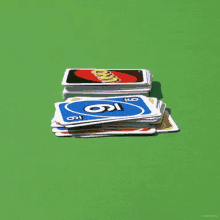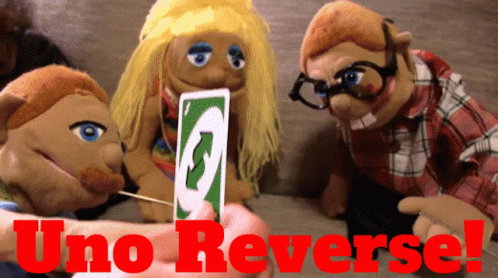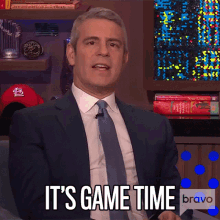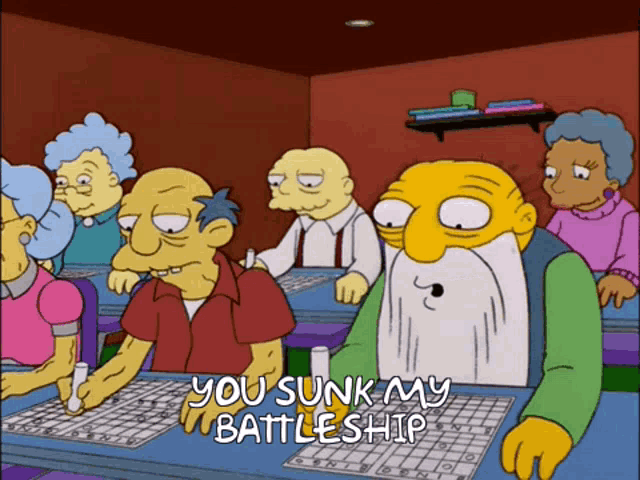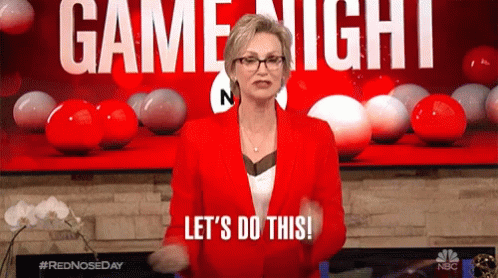27: How Mike Tyson, Uno, & Science Keep Tempers in Check
And Why It Might Be the Best Therapy Tool Ever!
Picture this: Mike Tyson, mid-faceoff with Jake Paul, biting his glove. No, it wasn’t some bizarre intimidation tactic—it was his way of keeping himself from annihilating the guy.
That little movement helped him refocus and keep his cool, preventing chaos in the ring. (More about Mike biting his glove later…)
So, what does that have to do with me playing Uno?
Everything.
When tensions rise—whether it’s a heated argument or a ruthless game of stacking Draw Fours—I will now forever turn to movement, like grabbing a deck of Uno cards, to regain control.
In this newsletter, we’ll explore how simple, purposeful actions can help us stay calm, cool, and collected—Tyson-style.
Recently, I was sitting across from my on-again, off-again boyfriend.
Now, let me say this upfront—we respect each other 100%. But like any couple, we’ve got our challenges, especially when it comes to our love languages.
And sometimes, it feels like we’re trying to have a conversation in two entirely different dialects, and we’re still figuring out if that’s something we can work through.
So, there we were, diving into one of those conversations. You know the kind—the kind that usually ends with me raising my voice a little too much when he shares with me how many times I interrupted him.
Except this time, something was different.
We were playing Uno.
That’s right. A game of Wild Cards, Draw Fours, and “Oh, you did not just Skip me!” turned what could have been a tense, dramatic talk into something… dare I say, productive?
We laughed.
We listened.
We actually communicated.
What was going on? Was Uno some kind of magic therapy tool? Or was it science?
Spoiler: It’s a little bit of both.
What’s Happening in Your Brain When You Play Uno?
Here’s why Uno (or any simple, hands-on activity) can turn challenging conversations into calm, productive ones:
1. Your Prefrontal Cortex Stays in Charge
When conversations get heated, your amygdala (the fight-or-flight center of your brain) often hijacks the situation.
It’s why you feel defensive or impulsive when emotions are high.
But playing Uno activates your prefrontal cortex—the part of your brain responsible for planning, decision-making, and self-control.
Science Moment: Studies show that keeping your prefrontal cortex engaged during emotionally charged situations reduces the likelihood of overreacting.
Translation: You’re too busy deciding whether to play a Draw Four or a Reverse to let your emotions run the show.
Fun Fact: Imagine your brain is like a car.
The amygdala is the gas pedal, and it wants to speed up and drive wild when you’re upset. But your prefrontal cortex is the brakes—it slows you down and helps you steer in the right direction.
When you give your prefrontal cortex a job to do, like solving a puzzle or figuring out your next move in a card game, it takes over the wheel.
This makes it harder for your emotions to take control, so you can respond calmly instead of freaking out.
2. Games Release Dopamine (a.k.a. Your Happy Chemical)
Every time you win a hand or successfully Skip someone, your brain gets a little dopamine boost. This feel-good neurotransmitter enhances focus, reduces stress, and makes you feel more optimistic—even when the topic is tricky.
Science Moment: Dopamine not only lifts your mood but also improves problem-solving and emotional regulation.
Translation: Those small “wins” during the game make even hard conversations feel a little easier.
Fun Fact: Dopamine is like your brain’s “yay!” button.
Every time you win at a game, it cheers you on and makes tough things feel easier by helping you stay calm and think clearly.
Winning at Uno?
That’s your brain saying, “You’ve got this!”
3. Your Body Stays Grounded
Playing Uno isn’t just about strategy—it’s physical. You’re shuffling cards (for the record, I am the better shuffler), laying them down, and tracking the flow of the game.
These small movements activate your parasympathetic nervous system, which helps calm your fight-or-flight response.
Science Moment: Physical activities, even small ones, can regulate your nervous system and keep you in “rest and digest” mode instead of “panic and react” mode.
Translation: Keeping your hands busy keeps your body relaxed—and your emotions in check.
Fun Fact: Athletes use this trick all the time!
When they bounce a basketball, tap their hockey stick, or adjust their gloves before a big play, it’s not just habit—it’s their body’s way of staying calm.
Even Mike Tyson uses this trick!
During his recent fight against YouTuber Jake Paul, Tyson was seen biting his glove between rounds.
When asked about it, he explained, “I have a biting fixation.”
This small, repetitive action helps regulate the nervous system, keeping him calm and focused under pressure.
It’s a subtle way athletes like Tyson stay in control—even when the stakes are high!
4. It Creates a Neutral “Third Space”
Nothing says “We’re about to fight” like sitting down at the kitchen table and saying, “We need to talk.”
But a game creates a neutral, shared activity where the conversation feels less like a battle and more like teamwork (although I don’t know how much of a team we were being when he used the card where he switched the deck with my hand - and my hand had MacDaddy cards - and his hand sucked shit).
Science Moment: Shared activities lower defensiveness and promote collaboration, which is why therapists often use games or creative tasks in sessions.
Translation: Uno gave us something lighthearted to anchor the conversation, making it easier to focus on the issue without feeling attacked.
Fun Fact: Therapists, hostage negotiators, and even FBI agents use this “neutral space” trick to lower tension.
Therapists often use board games or art to help clients open up without feeling judged.
Hostage negotiators might focus on small talk about hobbies or shared interests to create common ground.
Why?
Shared activities or neutral topics trick the brain into lowering its defenses, making it easier to connect and collaborate—even in high-stakes situations.
It’s teamwork without the pressure!
Should You Argue While Playing Uno?
Honestly?
Yes.
Uno (or any low-stakes game) might just be the secret weapon for handling hard talks.
Here’s why:
• It lowers emotional intensity: It’s hard to stay mad while trying to figure out if you should play that Wild Card now or save it for later.
• It adds humor and levity: Laying down a Reverse card mid-conversation is strangely satisfying. (We laughed a lot.)
• It creates natural pauses: If things get awkward or heated, you can focus on the game for a moment to reset.
But hey, let’s keep it real—if someone in your relationship flips tables over Monopoly, maybe stick to puzzles.
Why This Works (A Brain-Body Breakdown)
Here’s the neuroscience behind why Uno helped us:
• Multi-tasking with a Purpose: Your brain can’t fully engage in both an argument and a game, so the logical side takes over and the emotional side chills out.
• Dopamine = Positivity: That little dopamine rush from playing keeps you upbeat, even during hard conversations.
• Grounding through Movement: The physical act of playing keeps your body relaxed and your nervous system balanced.
• Safe Collaboration: Games create a feeling of partnership, even when you’re discussing difficult topics.
Pro Tips for Playing and Talking
• Start with a win: Play a warm-up hand to get the laughter flowing before diving into the serious stuff. (The first several hands, I was annihilating him, but the tide turned quickly, and in the end, he won by a game or two. Shhh! I’ll never admit it.)
• Keep it light: If the conversation starts to heat up, take a breather and focus on the game.
• Choose the right activity: If Uno isn’t your jam, try puzzles, Jenga, or even coloring together.
Your Game Starter Kit for Conflict Resolution
Here are a few activities that can work magic during tricky conversations:
• Uno: Fast-paced, fun, and great for breaking the ice.
• Jenga: Builds suspense and creates natural pauses.
• Scrabble: Perfect for word lovers (and subtle bragging rights).
• Puzzles: Quiet and grounding—ideal for introspective talks.
• Chess/Checkers: Great for strategic thinkers.
Your Challenge This Week
Here’s what I want you to try:
1. The next time you need to have a challenging conversation, grab a game or activity and see what happens.
2. Pay attention to how you and the other person feel during and after the talk.
3. Write back and let me know—did this save the day, or did someone storm off yelling, “I’m never playing Uno again!”?
Reflection
Playing Uno during that conversation reminded me of Mike Tyson biting his glove to keep from annihilating Jake Paul.
It was his way of regaining focus and control—a powerful reminder that even in moments of frustration, small actions can help us redirect our energy. Similarly, Uno gave us a playful outlet, allowing us to shift from opponents to teammates.
Even when we’re struggling to speak each other’s love language, there’s still room for laughter and connection. The game created a space where we could approach a tough topic with empathy and collaboration.
And that’s a win I’ll take any day.
So, next time you’re in a heated moment, take a page from Tyson’s playbook—or mine.
Find a small, intentional action to ground yourself. Whether it’s biting your “glove” (figuratively, please), shuffling some Uno cards, or taking a deep breath, movement can help you turn conflict into connection.
Go ahead—try it out, and see how you can transform tension into teamwork!
If you enjoyed reading this article, please make sure you click the heart button and then follow for my next newsletters!
Next Week on “In the Driver’s Seat”
“What Does Sighing Have to Do with God? The Surprising Science of Deep Breaths, Stress Relief, and Spiritual Connection.”
P.S. Think someone else could use this advice? Forward this email and let them know they’re one card game away from conflict resolution magic. Who knew Uno was the MVP of relationships?
Until next time,
Janine Driver
In the Driver’s Seat
www.JanineDriver.com
#InTheDriversSeat
#JanineDriver
#BodyLanguageExpert
#ConflictResolution
#BrainScience
#UnoMagic
#EmotionalIntelligence
#CalmUnderPressure
#PrefrontalPower
#WinningAtCommunication
#RelationshipTips
#StayCoolThinkSmart
#NeutralSpace
#FunWithScience
#ConnectionOverConflict


